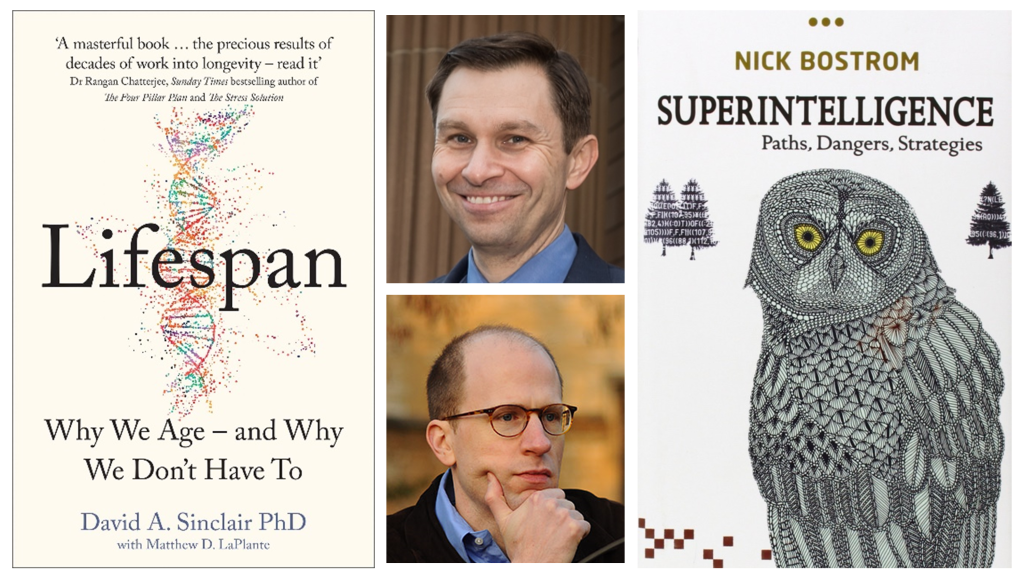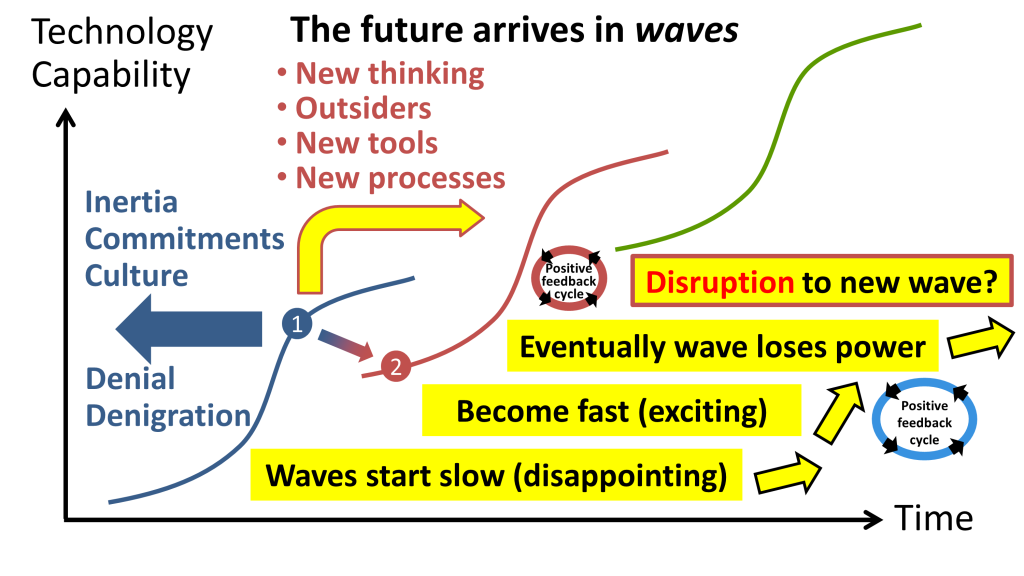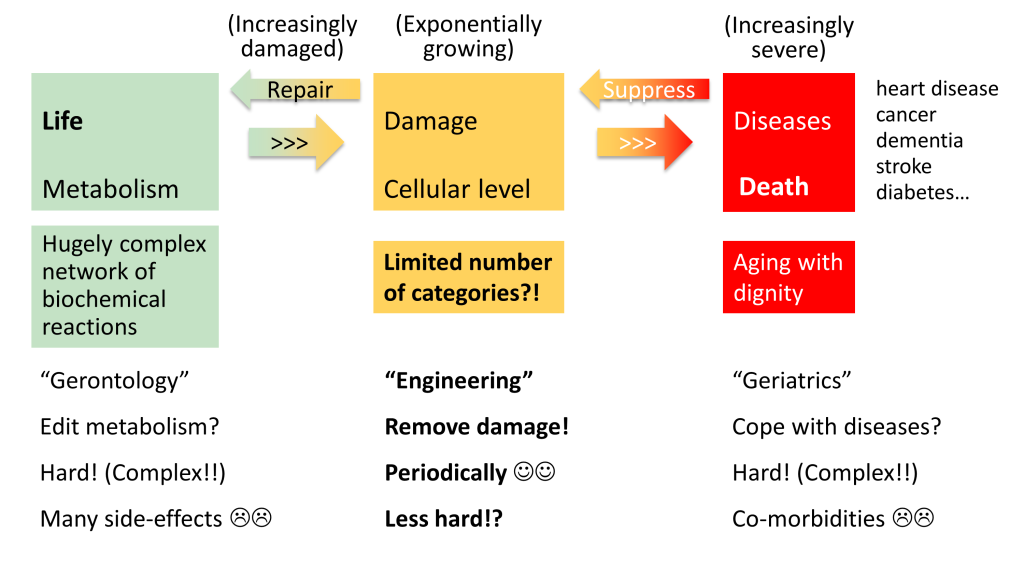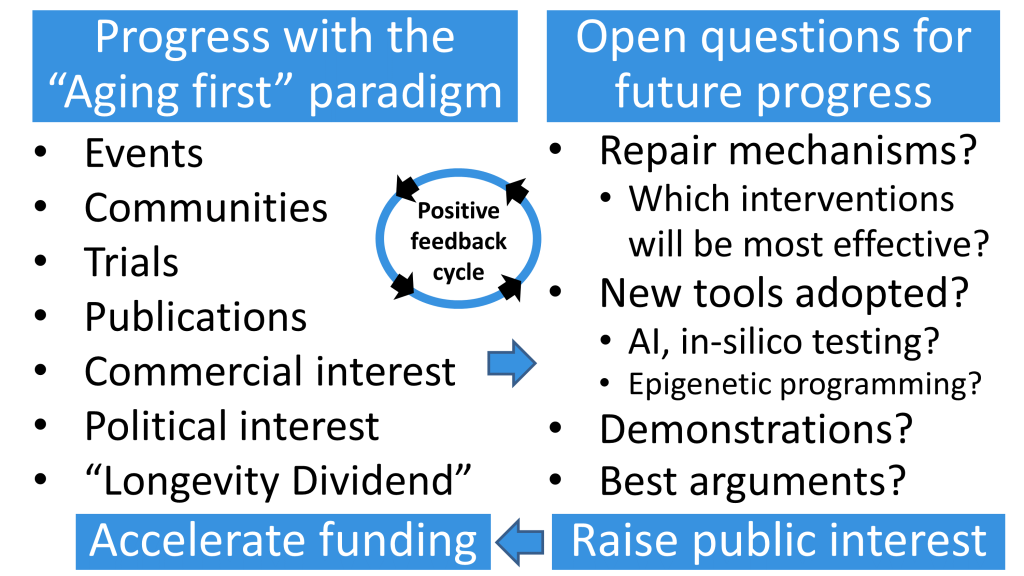Harvard Medical School professor David Sinclair has written a remarkable book that will do for an emerging new paradigm in healthcare what a similarly remarkable book by Oxford University professor Nick Bostrom has been doing for an emerging new paradigm in artificial intelligence.
In both cases, the books act to significantly increase the tempo of the adoption of the new paradigm.

Bostrom’s book, Superintelligence – subtitled Paths, Dangers, Strategies – caught the attention of Stephen Hawking, Bill Gates, Elon Musk, Barack Obama, and many more, who have collectively amplified its message. That message is the need to dramatically increase the priority of research into the safety of systems that contain AGI (artificial general intelligence). AGI will be a significant step up in capability from today’s “narrow” AI (which includes deep learning as well as “good old fashioned” expert systems), and therefore requires a significant step up in capability of safety engineering. In the wake of a wider appreciation of the scale of the threat (and, yes, the opportunity) ahead, funding has been provided for important initiatives such as the Future of Life Institute, OpenAI, and Partnership on AI. Thank goodness!
Sinclair’s book, Lifespan – subtitled Why We Age, and Why We Don’t Have To – is poised to be read, understood, and amplified by a similar group of key influencers of public thinking. In this case, the message is that a transformation is at hand in how we think about illness and health. Rather than a “disease first” approach, what is now possible – and much more desirable – is an “aging first” approach that views aging as the treatable root cause of numerous diseases. In the wake of a wider appreciation of the scale of the opportunity ahead (and, yes, the threat to society if healthcare continues along its current outdated disease-first trajectory), funding is likely to be provided to accelerate research into the aging-first paradigm. Thank goodness!
Bostom’s book drew upon the ideas of earlier writers, including Eliezer Yudkowsky and Ray Kurzweil. It also embodied decades of Bostrom’s own thinking and research into the field.
Sinclair’s book likewise builds upon ideas of earlier writers, including Aubrey de Grey and (again) Ray Kurzweil. Again, it also embodies decades of Sinclair’s own thinking and research into the field.
Both books are occasionally heavy going for the general reader – especially for a general reader who is in a hurry. But both take care to explain their thinking in a step-by-step process. Both contain many human elements in their narrative. Neither books contain the last word on their subject matter – and, indeed, parts will likely prove to be incorrect in the fullness of time. But both perform giant steps forwards for the paradigms they support.
The above remarks about the book Lifespan are part of what I’ll be talking about later today, in Brussels, at an open lunch event to mark the start of this year’s Longevity Month.
Longevity Month is an opportunity to celebrate recent progress, and to anticipate faster progress ahead, for the paradigm shift mentioned above:
- Rather than studying each chronic disease separately, science should prioritise study of aging as the common underlying cause (and aggravator) of numerous chronic diseases
- Rather than treating aging as an unalterable “fact of nature” (which, by the way, it isn’t), we should regard aging as an engineering problem which is awaiting an engineering solution.
In my remarks at this event, I’ll also be sharing my overall understanding of how paradigm shifts take place (and the opposition they face):

I’ll run through a simple explanation of the ideas behind the “aging-first” paradigm – a paradigm of regular medical interventions to repair or remove the damage caused at cellular and inter-cellular levels as a by-product of normal human metabolism:

Finally, I’ll be summarising the growing momentum of progress in a number of areas, and suggesting how that momentum has the potential to address the key remaining questions in the field:

In addition to me, four other speakers are scheduled to take part in today’s event:
- Felix Werth, member of the German Party for Health Research, who will describe European and German political campaigns for elections.
- Guilhem Velve Casquillas, CEO of Elevsys/Elveflow and the creator of the website “Long Long Life”, who will summarise his projects and the Plan ExtenSanté.
- Didier Coeurnelle, co-president of Heales, who will highlight the Californian referendum project (CHAI) and the proposal of a moonshot project for longevity.
- Sven Bulterijs, co-president of Heales, who will review recent scientific news concerning longevity.
It should be a great occasion!
Leave a comment